Taking a proactive approach to well-being in major life transitions
Karen Gallagher and colleagues at ASU's Global Sport Institute are working to help athletes and vets better adjust to civilian life
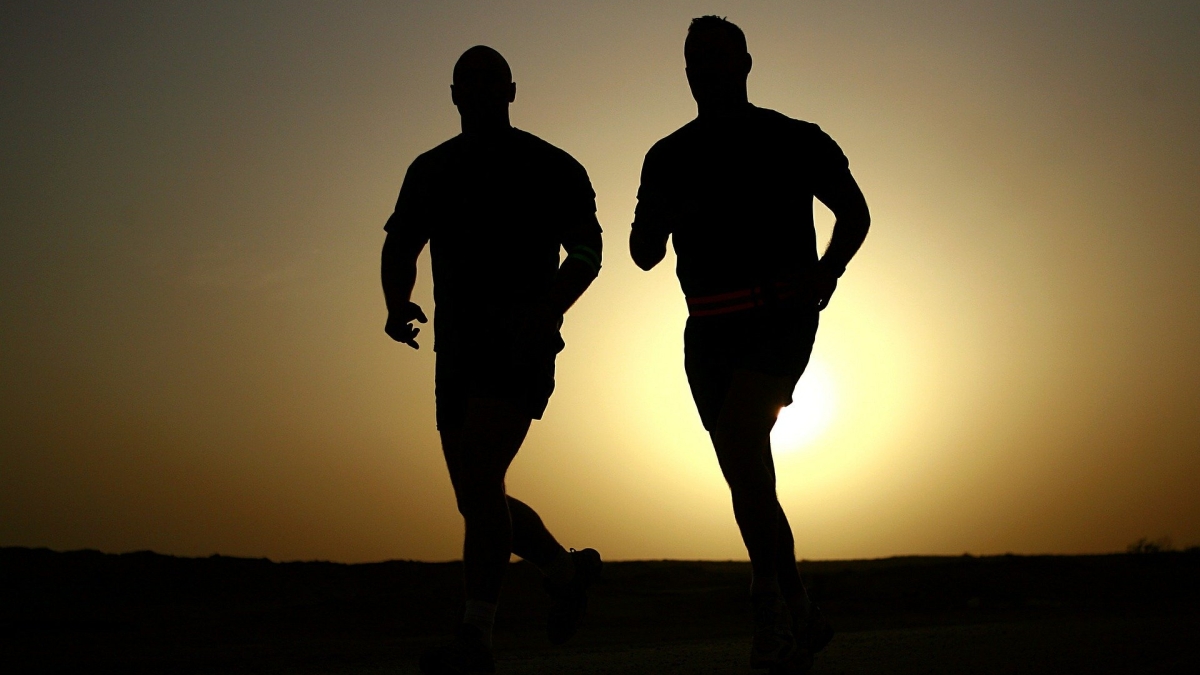
Twenty-nine years ago, Karen Gallagher could have been mistaken for any other wide-eyed kid on the Highline Community College campus in Des Moines, Washington, stumbling her way through the first week of classes, hesitantly navigating the malls and courtyards in search of the right lecture hall.
But Gallagher wasn’t your typical first-year student. Mere days before, she had been calculating dissipation for chemical agents and helping route evacuation plans in the event of chemical warfare — among myriad other high-stakes tasks — as an airborne nuclear biological chemical specialist serving in the Gulf War. Now she found herself thrust into a strange new environment that, try as she might, she simply could not adjust to.
“People would ask me, ‘Are you a student?’ and I would say, ‘Not really,’ because I just didn't identify with them,” she said. “I felt very lost, and I would go weeks without speaking to anyone or going to class. I just had no ability to connect.”
Nearly 20 years later, when Gallagher became a faculty member at Arizona State University in 2010, she watched with mournful recognition as the next generation of veterans arrived on campus with their Post-9/11 GI Bill education benefits and the same lost look in their eyes.
“I just thought to myself, ‘How are we still not doing this any better?’” she said.
Gallagher calls it “the trauma of freedom” — the sudden, often debilitating uncertainty experienced by many veterans who, while fulfilling their duty in the military found stability and purpose in the structure and externally defined mission, only to find themselves completely lacking direction when they reenter civilian life.
During her time at ASU’s College of Health Solutions, Gallagher worked hard to better serve student veterans. She founded the Veteran Clinic within the Speech and Hearing Clinic to provide grant-funded treatment to veterans experiencing memory and learning difficulties, as well as the Office for Veteran Health Solutions, which facilitates research to identify evidenced-based solutions to obstacles faced by student veterans as they transition from military service to academic and civilian life.
Through her research, Gallagher connected with colleagues at ASU’s Global Sport Institute who were interested in the similar experience of college athletes embarking on what they call their “post-sport journey.”
“We have these two populations, military veterans and elite athletes, who have these all-encompassing roles in life, to the point where their identity becomes fused with what they do,” Gallagher said. “And we let them live in this fusion. In fact, we encourage it, because (the thinking is), ‘How can we let them begin to think about life after the game or life after service when we need their head completely in succeeding right now?’ Which forecloses any thinking about a future.”
Gallagher likens it to sending someone to an unfamiliar place without a map, waiting for them to get lost and only then reaching out to help.
“Our whole idea is, why don’t we give them the maps up front?” she said. “Let's normalize thinking about the future and knowing it's inevitable; that the game will end, that military service will end. And that that is not the right time to begin thinking about the next phase of your life.”
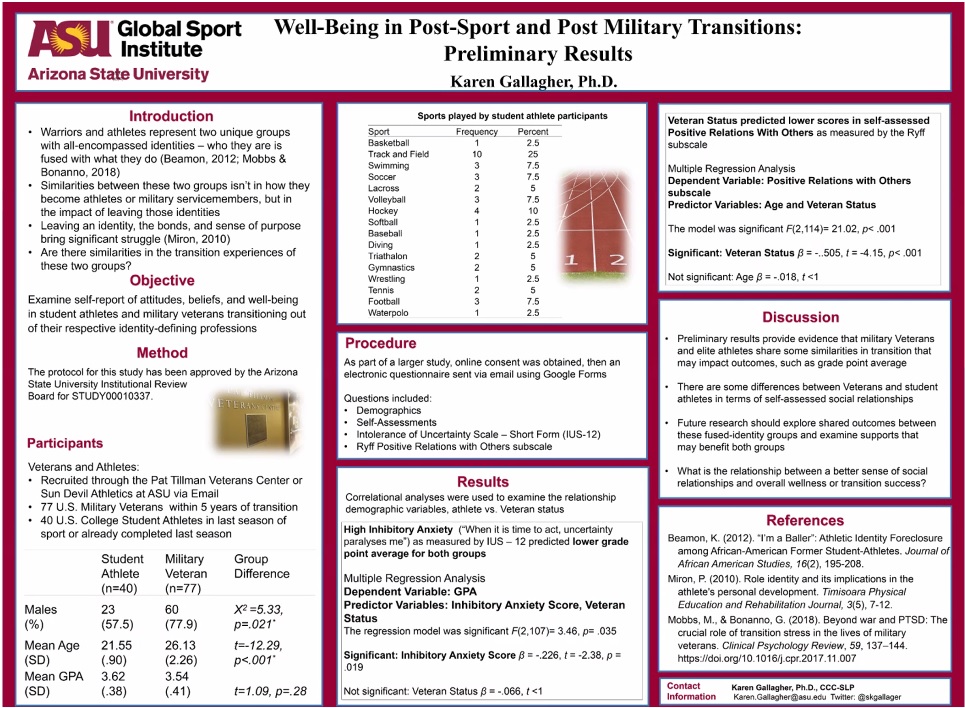
Now a senior researcher at the Global Sport Institute, Gallagher is working with colleagues there to develop something they call an intake instrument — a method of evaluating athletes and military service members on a number of metrics, such as well-being, cognition and executive function, long before they begin to reenter civilian life, so that resources can be provided ahead of any potential obstacles, instead of waiting until there is already a problem.
Researchers are only about a year into developing the intake instrument, but already they are beginning to quantify certain factors that might predict better postservice and postsport journey outcomes.
“Then we can say to the athlete or the service member, ‘OK, here's where you are. Here are your strengths, here are your areas of need. And here are some resources for those areas of need,'” Gallagher said.
She recently presented some preliminary findings at this year’s Global Sport Institute research conference that found a correlation between anxiety associated with uncertainty and low grade point average for both military veterans and college athletes. The findings were based on data collected from participants recruited through the Pat Tillman Veterans Center and Sun Devil Athletics.
“A lot of people have tried to do this, but they tried to do it without it being evidence-based,” Gallagher said. “And at (Global Sport), we are a research institute in a Research I institution, and it was important to us that it be evidence-based.”
The researchers intend for whatever final product they develop to be shared worldwide, with various iterations tailored for various branches of the military, college and pro athletics, and American and international sports.
Not only would such an instrument better prepare athletes and service members for a planned end to their game play or service, but also an unplanned end caused by injury or, perhaps, a pandemic.
“The NFL doesn't even call it a career anymore, they call it an experience because they don't want to communicate that this could (support you for the rest of your life),” Gallagher said. “Tom Brady is the exception, not the rule. And oftentimes, college athletes don't even have the option to go on to play professionally. That can be devastating on its own, never mind if this is your senior year and you don’t get to play your last season because of something like COVID-19.”
In August, she delivered the Make Your Mark talk for the Tillman Foundation’s annual leadership summit. It was titled, “The Game Will End.”
“The Global Sport Institute has done a fantastic job of forging a path in this space,” Gallagher said. “We’re really beginning to understand how we can better support (these athletes and service members) who have these all-encompassing identities.”
Top photo courtesy of Pixabay
More Health and medicine
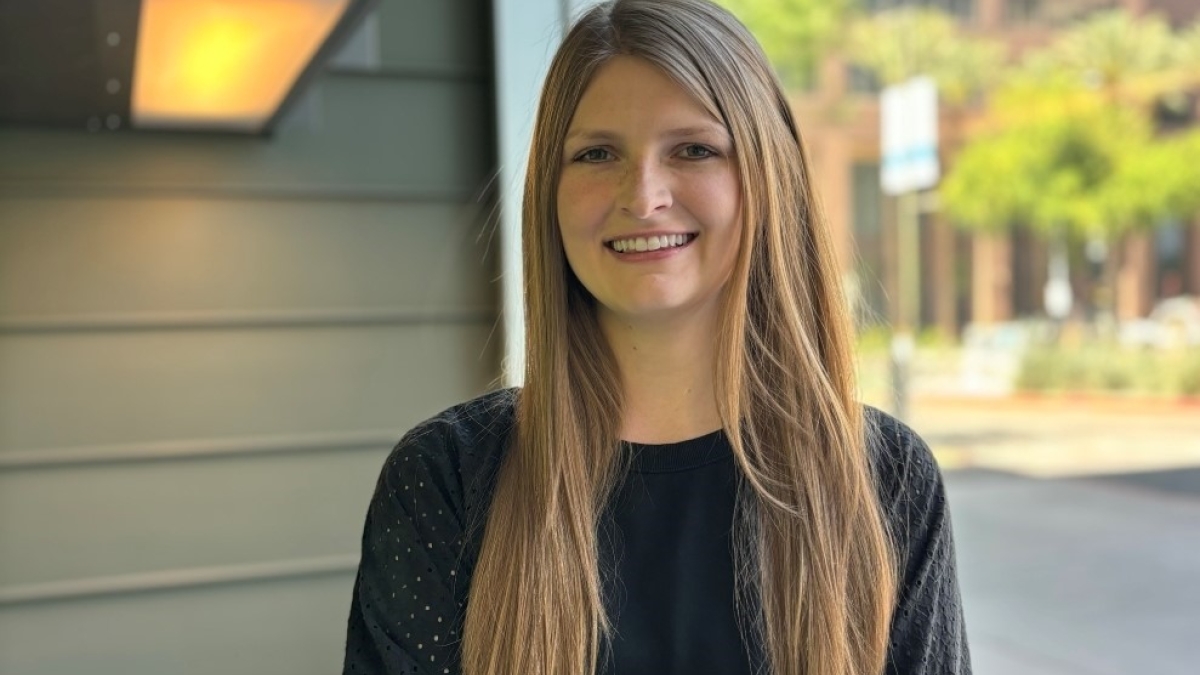
Outstanding Graduate works to make change happen for communities with food insecurities
By Aidan Hansen Editor’s note: This story is part of a series of profiles of notable spring 2024 graduates. Arizona native and College of Health Solutions grad student Tatum Dykstra has a passion…
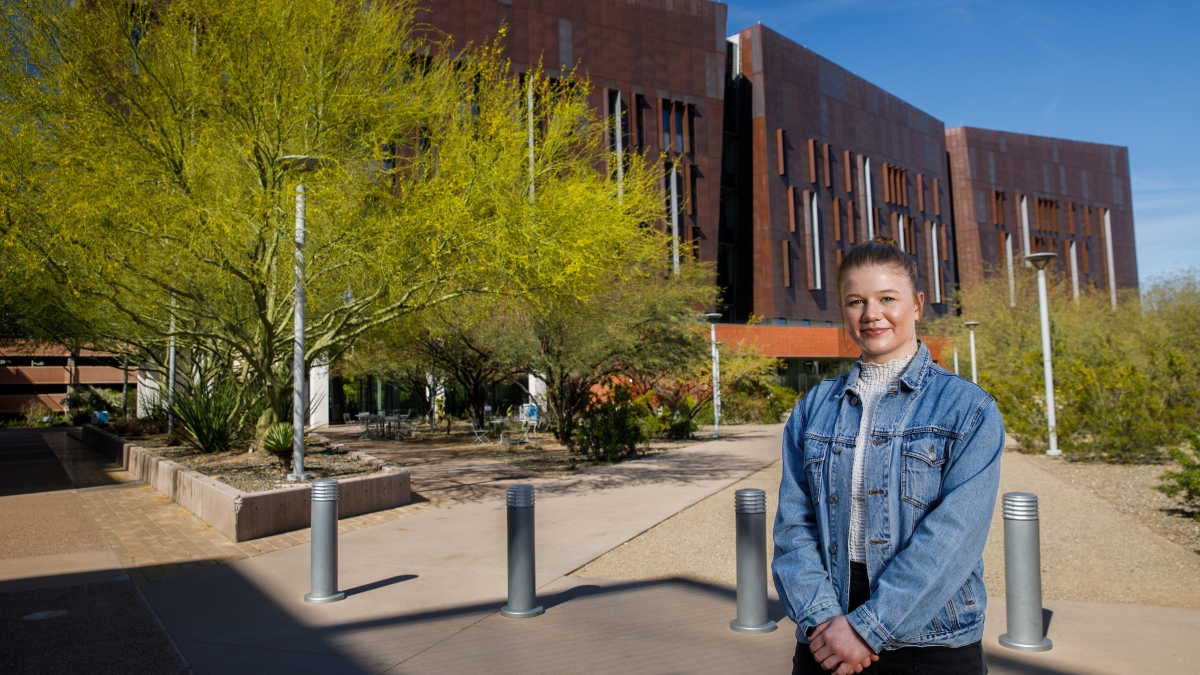
First exchange student for Biodesign Institute Europe bridges labs 5,000 miles apart
This spring semester, Grace Colley traveled to Arizona State University and became the first student to participate in the Biodesign Institute Europe student exchange program. In doing so, she helped…
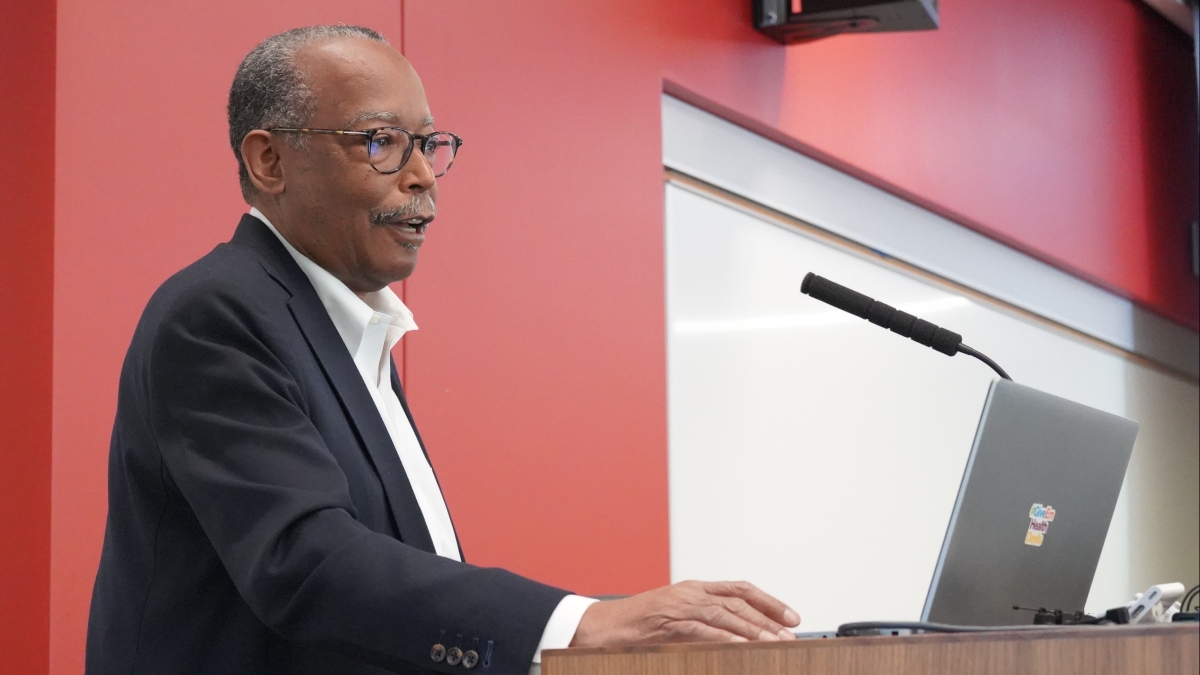
College of Health Solutions hosts visit from leading expert in genomic research
Some fortunate Arizona State University faculty, staff and students were able to gain valuable insights and perspective during a visit by one of the country’s leading figures in health and scientific…